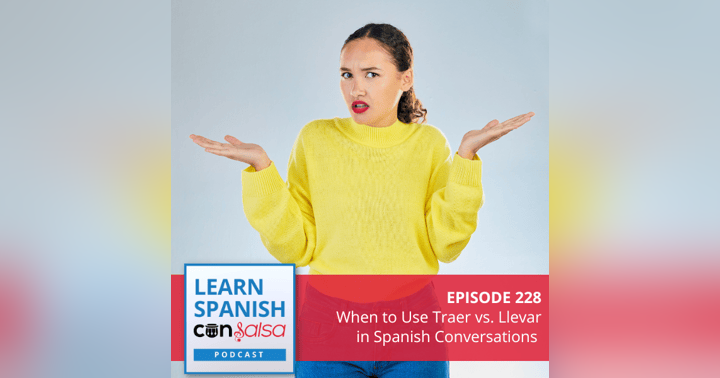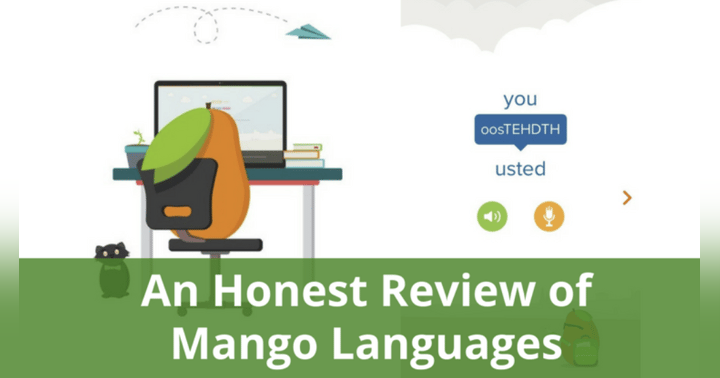My Honest Review of the Pimsluer Method

Learning a new language is hard. Sometimes, deciding what tool to use in order to acquire that language is even harder.
There are so many options that it is difficult to know where to begin.
I often get asked my opinion of the Pimsleur Method.
In the past, I used Pimsleur for Spanish and found it helped give a boost to my listening and speaking skills.
So I decided to give the Pimsleur French Short Course a shot when preparing for a trip to Montreal, and again when I started my Brazilian Portuguese mission.
Here is my advice to decide if this is the right program for you.
What is the Pimsleur Method?
Let’s start with a little background on the program first.
The Pimsleur Method was developed by applied linguistics scholar Paul Pimsleur (1927-1976). It is meant to mimic the way we master our first language as children, through immersion in conversation, listening, and speaking.
The method revolves around four basic principles: graduated interval recall, anticipation, core vocabulary, and organic learning.
What that basically means is you listen to a conversation and then gradually go through each word and phrase of the conversation until you are able to master it.
It’s available in both short courses and full courses that go from Beginner to Advanced levels.
Pimsleur is not an app like Duolingo, it’s simply an audio program that you listen to with optional reading supplements provided here and there.
The program is designed for you to spend 30 minutes per day, and the Pimsler website claims you can reach an intermediate level of fluency in your target language without ever really “studying”.
Sounds great, right?
Here is the reality and my opinion of the results you can actually get with the program.
What the Pimsleur Method does well:
1) Immerses you in conversation
I love the fact that Pimsleur immerses you in a conversation with native speakers conversing at a natural pace from the start.
Each lesson starts with a conversation, and explains that by the end of the lesson you will understand the entire conversation.
When I listened to the first French conversation, my brain was spinning.
I understood nothing, even in the most basic beginner conversation.
Then, the meaning of the words and phrases was explained in English, and I was given a syllable-by-syllable breakdown of each word.
I was then asked to repeat after and mimic the native speaker.
At the end of the 28-minute session, they replayed the conversation I understood everything.
This is a great program for chunking down material, and giving you quick wins by feeling a sense of accomplishment at the end of each lesson.
That feeling is what motivates you to go to the next lesson, and then to the next.
2) Starts with what matters
Pimsleur doesn’t mess around with random vocabulary.
Instead of starting with useless words like “man,” “woman,” “boy,” and “girl” – you get the vocabulary you need if you are traveling and/or meeting new people.
Basic greetings like “Good morning” and questions you may need abroad like: “Hello, do you speak English?” are used from the beginning.
The conversation then builds from there, adding in other important words and phrases with each lesson.
These key survival phrases are repeated throughout the lessons to keep them fresh in your mind.
After a few lessons “Do you speak/understand English?” is permanently cemented in your brain.
Since each phrase is repeated so many times within the 30-minute lesson, you will find yourself saying it over and over again in your head, even after the lesson ends.
3) Spaced Repetition Built-In
The program does a great job of breaking everything down and introducing you to a word or phrase and then repeating it, in some fashion, almost every lesson.
Therefore, even if you don’t feel 100% confident with every word or phrase you are introduced to in a lesson, rest assured that you will hear them again.
This reinforcement helps create a more lasting learning experience, to ensure that the words are stuck in your memory and ready to use when you need them.
4) Pronunciation focused
You're listening to native speakers instead of computer-generated voices.
The program breaks down new words by syllables to help you master the pronunciation before stringing everything together into a word or phrase.
This forces you to take the time to say things correctly and try to copy the native accent you are hearing.
It may feel slow and boring at times but will greatly improve your accuracy.
What’s left to be desired…
1) Auditory learner focused
If you learn well by listening (like me), this program will work wonders for you.
At times during the French lessons, however, I wanted to see how words were spelled to help me associate the sounds with letters and remember them better.
Considering the complexities of spelling in both French and Portuguese, I had to make the decision to focus on first speaking (basically, being an illiterate speaker) and wait to learn reading and writing later.
2) Intrinsic motivation
The entire program is listening to conversations, repeating words and phrases and answering questions.
The only way to measure your progress is by moving through the discs. For some people, this might be enough to keep you going.
My fear, however, is that the novelty will wear off and suddenly the idea of putting that disc in and talking to yourself for half an hour doesn’t sound so appealing.
I usually listen to the CDs in the car during my commute or a drive across town, but there were days I was yearning for more interesting content.
3) Not ideal for all types of conversations
Pimsleur starts teaching you the formal version of a language, and waits until several lessons in to introduce you to the more natural, informal way of speaking.
I think this is perfectly fine, since you when you meet people you will generally speak more politely or formally until you get to know them.
If you are looking for more casual conversations, you will not hear that in this program.
I do believe, though, that Pimsleur is great at giving you a solid foundation for the most important words and phrases you will hear in most conversations.
4) No feedback from a real person
It’s also important to note that you don’t get any feedback on your pronunciation other than your own self-monitoring.
To truly get benefit from the program, you should practice speaking the phrases you learned in conversations with real people (even if only a few words).
Note about referring to Spanish language:
In the first Spanish lesson Pimsleur states that Latin Americans refer to Spanish as Castellano.
This simply is not true.
The language we refer to as Spanish is actually called Castellano in Spain. Many people don’t realize that there are other languages spoken in the country.
The only place I have heard Spanish referred to as Castellano is in Argentina.
Everywhere else in Latin America, people mainly just say Spanish or español.
So does it work?
If you want to start having basic conversations in Spanish (or any other language) right away, Pimsleur will give you a good foundation.
I found many useful phrases that I actually used while I was in Brazil, even though I was struggle with a very basic level of Portuguese.
They also add culturally relevant vocabulary from the countries where the languages are spoken, so you are learning more than just words and phrases.
At the end of the day, if you want to get to a true intermediate/advanced level you will need to supplement Pimsleur with real conversations, studying the written language, and reading.
If you are able to consistently turn on the audio and make yourself practice, Pimsleur is a great way to start off learning important words and phrases and get yourself comfortable speaking a new language.
You will also have had the opportunity to practice speaking on your own, which should ease some of the anxiety you may have about talking to someone else in the language for the first time.
Overall, I highly recommend Pimsleur as a quality audio program that will teach you important vocabulary, phrases, and help you gain confidence with your pronunciation.













